
Simple Tips to Optimize Your Ecommerce Site for Local SEO
Local SEO is an effective marketing strategy for local eCommerce businesses. It can help increase your online presence in the search results. Brands get much better results than traditional marketing methods.
Local SEO for eCommerce websites has become a topic of discussion.
Google announced it would prioritize local search results in mobile searches and desktops. This is one of the biggest trends to hit the web today because eCommerce websites are dependent on online searches.
Local SEO for Ecommerce Websites
1. Focus On Money Keywords
Keywords are a critical part of the local SEO process for any niche.
You should always be on the lookout for undiscovered keywords, including keywords that are not used on any of your pages. The key here is detailed keyword analysis to find the best keywords in your niche.
Tools To Help You Find The Right Keywords For Local SEO
There are several tools that you can use to find these unmentioned keywords.
You can also look at your competitor's web pages. But don't forget to include what they haven't optimized for. This can set your website up for the eventual local SEO process.
- Google Keyword Planner is a great option for starters, and it's powerful.
The screenshot below shows the keywords, their search volume, and competition.
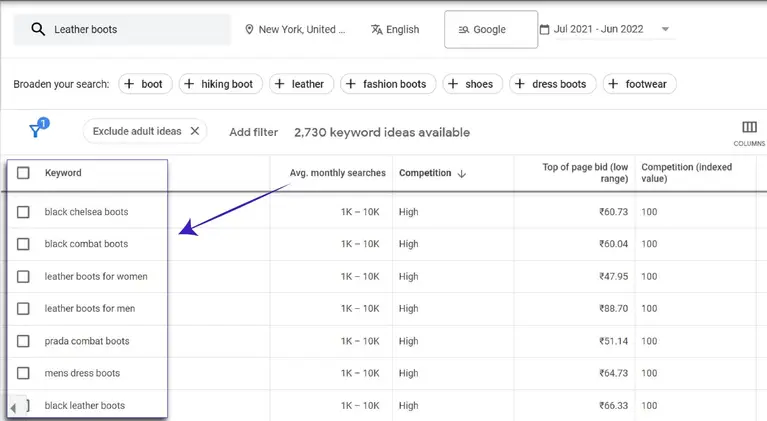
- For paid options, check our Moz Keyword Explorer. It is elaborate and highlights critical money keywords.
- Keyword Surfer is a great little browser extension to get keywords.
2. Create Unique, High-Quality Content
Content marketing aims to create valuable and useful content for consumers.
Creating unique content is a good start to improving your site's local search optimization. You must create original content targeting a specific area to rank for local queries.
Creating High-Quality Content For Ecommerce
Focus on the needs and wants of your local audience. Creating articles and blog posts that speak directly to their wants can help.
Content is the crux of all local SEO principles. You need to rank your content high to ensure better local SEO coverage. Don't just focus on text content - opt for infographics and videos.
- No content funnel is complete without BuzzSumo.
The below screenshot shows a sample of how it helps discover trending content for businesses.
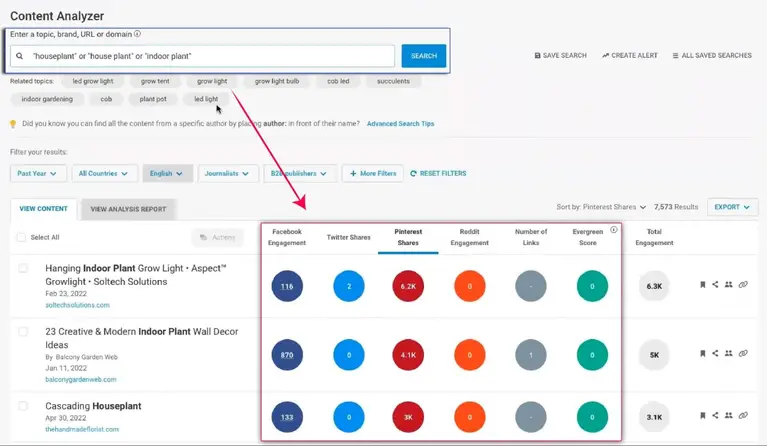
- For auditing your written content, Grammarly works well.
- SimilarWeb can help you draw inspiration for related content topics.
3. Building A Quality Backlink Profile
Backlinks are a great source of credibility and lead for a business. A quality backlink profile is important for any business.
This is especially true for eCommerce websites that need a strong online presence.
If you own an eCommerce website that sells products, you need to optimize it to get targeted traffic. You'll want to target local search keywords to have a great backlink profile.
Building A Strong Backlink Profile For Local SEO
An eCommerce site is more likely to rank high in Google if it has a strong online reputation and a good online presence.
To develop a quality backlink profile, you must earn backlinks from high-authority websites. This requires a lot of patience, but once you start building these links, you'll see a steady increase in rankings.
- Ahrefs has one of the largest backlink indexes in the world and is a great resource.
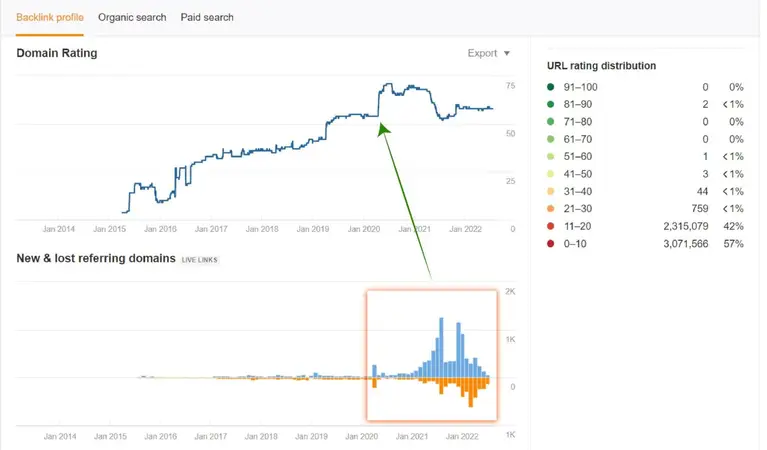
- Nightwatch helps you monitor and analyze backlink patterns on your website.
- SEMrush is another huge backlink repository.
4. Optimize And Align Metadata
To ensure that search engines index your eCommerce website, it is important to optimize the metadata on your site.
SEO's three most important metadata fields are the title, description, and keywords. This is the information you enter into the webmaster tools of your website.
Optimizing Meta Information For Better Local Reach
Meta tags are the bread and butter of search engine optimization.
By optimizing the meta information of your website, you can improve your chances of being found by Google and other search engines. And this is crucial when it comes to eCommerce because it is dependent on keywords.
- Google Analytics can give you an overview of your meta information.
- For a more expansive package, HubSpot can also help.
- Screaming Frog SEO Spider can give you critical insights about your website, as shown in the below screenshot.

Read: On-page SEO Mistakes to Avoid On Ecommerce
5. Ensure Adequate Keyword Presence
Keywords are important to the process, yes. But you also need to ensure it is effective by including it in critical areas of your website.
If you want your eCommerce site to perform well in search engines, it must be optimized for local search. Local search differs from general search because it focuses on businesses, neighborhoods, and regions.
Adding The Right Number Of Keywords To Your Website
You'll want more traffic from the major search engines to increase your online visibility. You can achieve this by optimizing the keywords you're targeting. Also, ensure that it is both effective and optimized for your business.
- Google Search Console is free and improves your keyword density on your website.
- Get the right keyword to focus on for your eCommerce website with Soovle, which fetches trending search intent keywords from various platforms like Amazon, Yahoo, Google, etc.

- Use RankIQ to get better keyword-driven content for your brand.
6. Optimize Website For Mobile
Mobile has overtaken other traffic sources in the world today. Mobile devices account for more than 50% of total website traffic.
If your website isn't optimized for mobile, you're leaving money on the table. This can be especially important if you're running an eCommerce website.
Studies show that mobile e-commerce apps have a much higher open rate than desktops.
Tools To Help Your Website For Mobile Devices
Mobile searches are becoming increasingly important to consumers. Google is now prioritizing mobile traffic. Google's algorithm is paying more attention to how a website displays on a mobile device. This means that having a mobile-friendly website is the way to go.
- The Mobile-friendliness Test checks whether or not a site is mobile friendly and gives tips to improve.
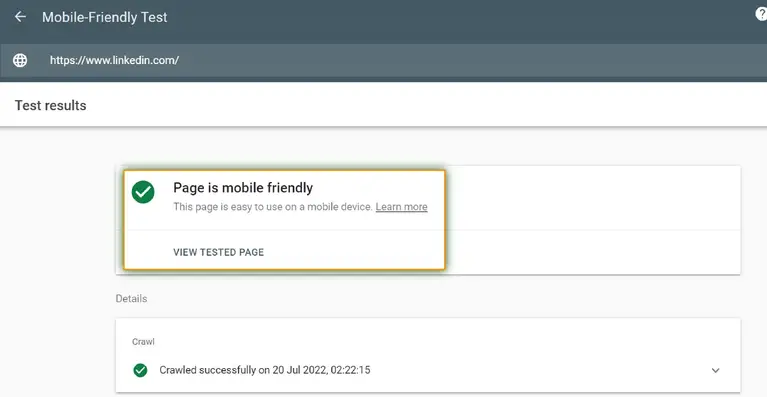
- The key here is to opt for responsive website design builders like Bootstrap.
- AMP is a technology that can help improve mobile websites.
Read: How to Improve Your Mobile UX - 9 Top Tips
7. Reduce Page Load Times
One of the biggest developments in recent times has to do with page load times. As technology continues to improve, load times are falling rapidly.
Google recognizes load time as a critical metric for ranking. This means the quicker your website, the better its chance of ranking higher on related searches.
Leveraging Page Load Times For Your Ecommerce
While optimizing your eCommerce site for local search is important, reducing page loading times is also crucial.
People are becoming more impatient, and there's a greater chance they'll just look for another website instead of yours.
- Reduce the number of needless resources you need to load on your website.
- Optimize your images with Adobe Suite or Imgur online.
- Opting for a content delivery network (CDN) has a significant positive impact. Take a look at the below screenshot showing how the loading speed is reduced by distributing content through CDN.

8. Provide Different Payment Options
If you sell products and services, you must accept different payment forms. The website must be set up to accept all the different payment types.
However, you also need to ensure that the checkout process is easy.
Payment Options And Their Role In Ecommerce
As an eCommerce brand, help customers understand how much money they will need to pay and their options. The more options you provide them to pay, the more customers you can cover.
This is especially useful if you're a multinational eCommerce brand. Here are some of the most popular payment options you need to have on your eCommerce website.
- Credit card payment gateways are the most common for all eCommerce websites today.
- PayPal is probably one of the most popular payment portals right now. It’s the safest and most secured international payment platform in the world.

- Stripe is quickly gaining traction and is a great alternative.
9. Use A Robust Cart System
All said and done, the goal of an eCommerce website is to sell things. The most crucial part of the experience is the shopping cart you use.
It should be easy and intuitive for your customers to use. Abandoned carts are one of the biggest problems e-commerce brands face today.
Building A Competitive And Effective Shopping Cart
A shopping cart is an important tool for eCommerce in the online world. It helps build trust and credibility between the shopper and the retailer.
An online shopper can be a valuable customer and make or break a business. You must give your shoppers a positive experience; a shopping cart will help you accomplish this.
- Shopify has the most popular shopping cart app for eCommerce today.

- Ecwid is another option that can work as well.
- If you are adept at programming, take a look at Magento.
Read: 22 Proven ways to Reduce Shopping Cart Abandonment in Ecommerce
10. Implement Improved Search Algorithms
Search is a basic function of every eCommerce portal. It helps people find what they want on the website. You need to ensure that you have it implemented as well as possible.
This can prevent a lot of frustration for your customers and help you gain more traction.
Improving Your Ecommerce Search Options
A website search should allow users to find what they want in the shortest time possible.
Failing this, it should highlight relevant products they can use for the same purpose. Your eCommerce website search has to be comprehensive and contextual as well.
- Searchspring is a popular option for eCommerce website searches as it provides personalized search options, as shown below.
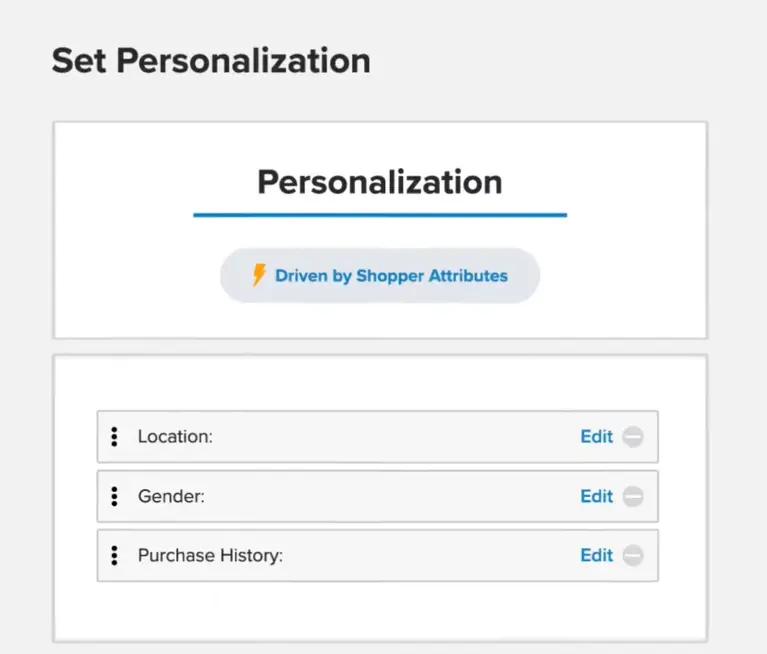
- Algogila uses AI-powered subroutines to provide accurate results.
- Another popular option for eCommerce searches is Bloomreach.
Local SEO for Ecommerce Websites - FAQs
1. Can Local SEO Help Ecommerce Websites?
More than 80% of people search for things online. That means that when they're looking for a product online, local SEO can help them find it or a business, even if they don't live near a store.
2. What Is The Difference Between National And Local SEO For Ecommerce?
We can't stress enough that local SEO is important for every business, especially those in retail and eCommerce. At the same time, national SEO doesn't always seem to apply to small business owners or for local reach.
3. Can Having Local Citations Hurt National SEO?
Local search is becoming a major traffic driver, especially for eCommerce users, where local citations are often the main source of search results. So, the answer is - no, local citations will not hurt national SEO efforts.
4. How To Pick The Right Local SEO Expert For Ecommerce?
The best local search engine optimization experts are the ones who have the skills and tools in the niche. Looking at your current Google ranking, they can tell you what needs to be done to improve it. They can analyze your company's website to see how it stacks up against its competitors in the search results. And finally, they can do all this within your budget.
Key Takeaways
- Ensure you start with detailed keyword research.
- Automate wherever possible to save time and money.
- Using AI-powered tools can give you the edge.
- Prefer mobile-first methods to develop your eCommerce website.
- Build a strong content framework for best ranking results.
- Have more payment options to cover more people.
- Select a dependable and intuitive shipping cart experience.
- Implement contextual search for your eCommerce website.
ABOUT THE AUTHOR:
Brice Decker

Brice has been handling marketing projects for more than 12 years and he is providing consulting services on SEO, Social Media and PPC. He has a huge expertise in working at large corporations including Accenture Interactive & PwC Digital Services.
ABOUT THE AUTHOR:
Brice Decker

Brice has been handling marketing projects for more than 12 years and he is providing consulting services on SEO, Social Media and PPC. He has a huge expertise in working at large corporations including Accenture Interactive & PwC Digital Services.
Related Post
How to Rebrand Your Business Without Losing SEO?